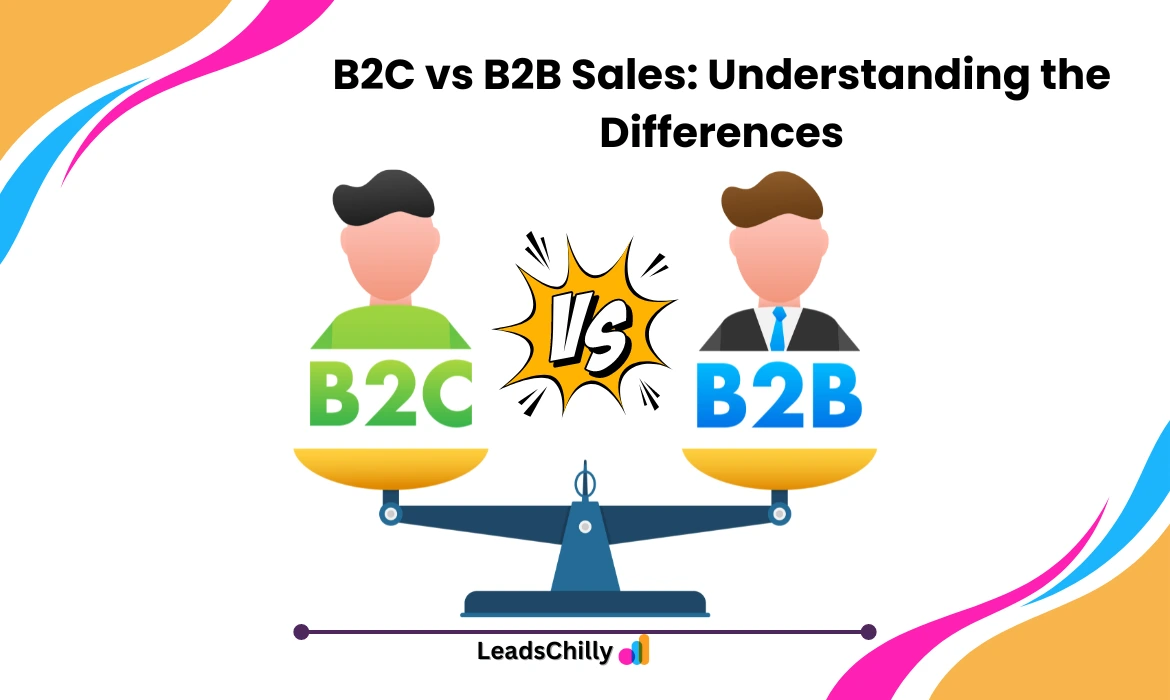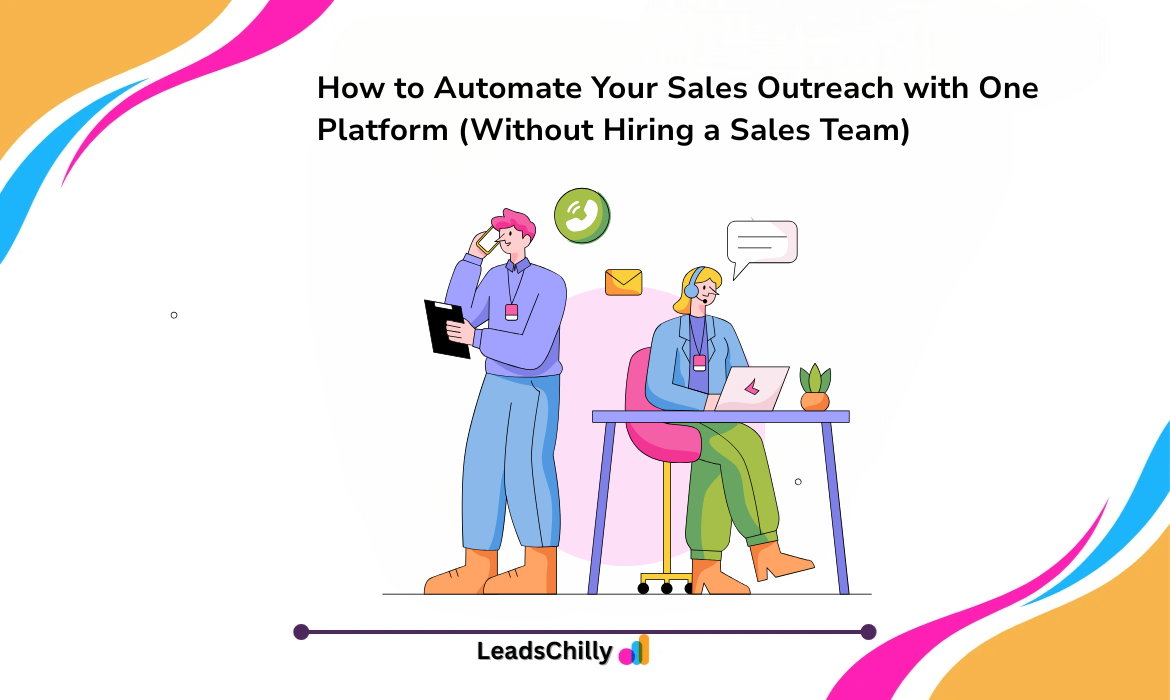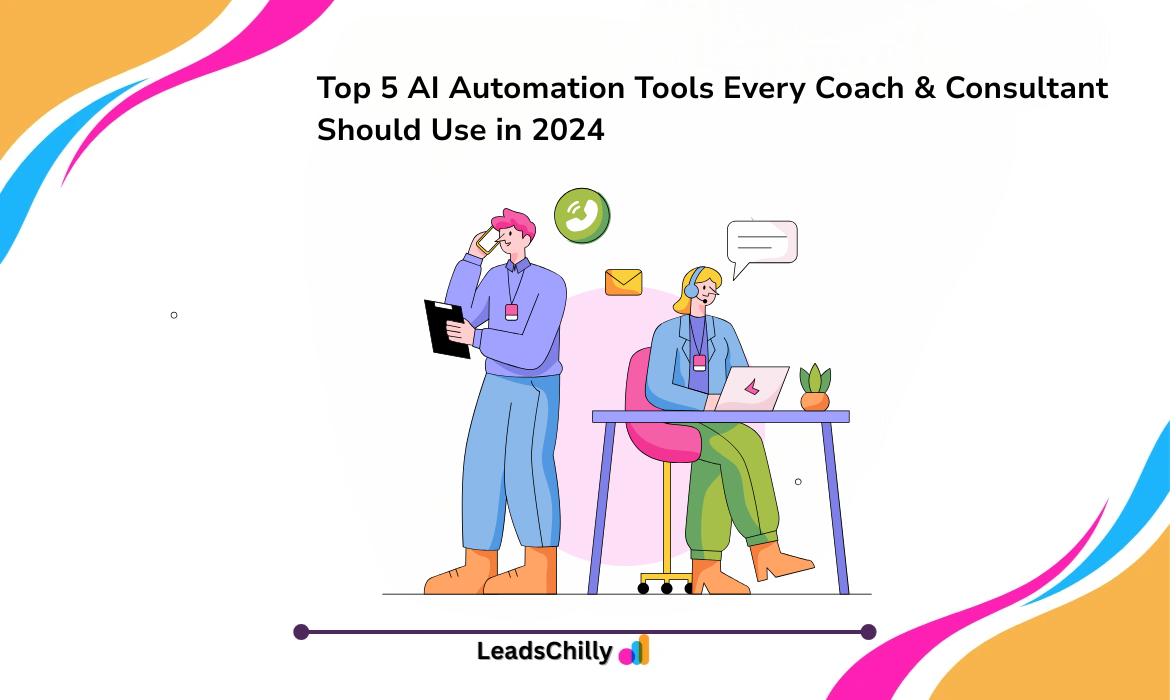In today’s rapidly evolving business landscape, understanding the differences between B2C (Business to Consumer) and B2B (Business to Business) sales is crucial for companies that want to thrive. Both sales models require distinct approaches, but they share the same goal—driving revenue and ensuring long-term success.
According to recent research, 60% of consumers are likely to switch brands due to poor customer service, emphasizing the critical importance of customer experience in maintaining brand loyalty. This statistic highlights how B2C sales rely heavily on delivering excellent customer service to retain customers.
This guide will help you understand the critical aspects of B2C vs B2B sales, the unique challenges they present, and strategies for excelling in both. Whether you’re targeting individuals or businesses, knowing the dynamics of each can help you craft more effective sales strategies and meet your business goals.
What is B2C Sales?
B2C Sales refers to the direct sales of goods or services from a business to individual consumers. These transactions are typically quicker and involve a higher volume of smaller purchases. B2C sales are the backbone of many industries, including retail, e-commerce, and entertainment.
Characteristics of B2C Sales
- Transaction Volume: B2C involves a high number of transactions, often at lower price points.
- Customer Interaction: Customers in B2C make decisions more quickly, often influenced by emotions, convenience, or social proof.
- Marketing Strategies: B2C businesses rely on mass marketing strategies to reach large audiences, focusing on creating emotional connections with consumers through ads, social media, and influencer marketing.
Examples of B2C Transactions
- Purchasing a new smartphone from an online store
- Buying groceries at a supermarket
- Subscribing to a streaming service like Netflix
Challenges in B2C Sales
- Customer Acquisition: With an overwhelming number of competitors, acquiring new customers can be costly.
- Competition: Brands need to constantly innovate and differentiate themselves to stand out in crowded markets.
- Brand Loyalty: Maintaining customer loyalty is tough as consumers are quick to switch to competitors for better deals or experiences.
According to a recent report, 60% of consumers are likely to switch brands due to poor customer service, showing the importance of maintaining strong relationships and delivering consistent value .
Key Differences Between B2C and B2B Sales
Feature | B2C | B2B |
Target Audience | Individual consumers | Businesses |
Sales Cycle | Short and often impulsive | Long, complex |
Marketing Approach | Emotional, mass marketing | Rational, relationship-based |
Transaction Size | Smaller and frequent | Larger, less frequent |
Customer Focus | Individual needs | Business challenges |
Target Audience
- B2C: The focus is on individual consumers who buy based on personal preferences, needs, and emotional triggers.
- B2B: Focuses on solving business problems, offering value through efficiency, cost-savings, or ROI.
Sales Process
- B2C: The sales process is faster and often influenced by consumer behavior patterns, such as impulse buying.
- B2B: Involves a more structured process with multiple touchpoints, requiring trust-building and problem-solving.
Pros and Cons of B2C vs B2B Sales
B2C Sales Pros:
- Larger Customer Base: There are millions of potential customers, which means more opportunities for sales.
- Quick Feedback: The market shifts quickly, giving companies the chance to adapt their strategies based on consumer trends.
B2C Sales Cons:
- High Competition: With numerous competitors in the market, standing out can be challenging.
- Lower Transaction Value: Individual sales tend to be smaller, which means businesses must rely on volume to make profits.
B2B Sales Pros:
- Higher Transaction Value: B2B deals are typically more significant, providing a higher revenue per transaction.
- Long-Term Contracts: Businesses often establish long-term contracts, providing a stable revenue stream.
B2B Sales Cons:
- Complex Sales Process: Selling to businesses involves longer sales cycles and requires dealing with multiple decision-makers.
- Dependence on Key Clients: Losing a few major clients can significantly impact revenue.
Strategies for Success in B2C and B2B Sales
B2C Sales Strategies:
- Personalized Marketing: Use data analytics and customer segmentation to create personalized experiences that resonate with individual customers.
- Omnichannel Presence: Consumers expect a seamless experience across multiple channels, including social media, websites, and physical stores.
B2B Sales Strategies:
- Account-Based Marketing (ABM): Focus on key accounts with personalized outreach to build stronger relationships with high-value clients.
- Networking and Referrals: B2B sales thrive on trust, and referrals can significantly impact your success rate. Building a solid reputation is key.
The Future of B2C and B2B Sales
Trends Impacting Sales:
- Digital Transformation: The use of automation tools and AI in both B2C and B2B sales processes is on the rise, making operations more efficient and personalized .
- Data-Driven Decision Making: Data analytics is driving marketing strategies, sales approaches, and customer engagement, allowing businesses to stay competitive .
- Impact of Technology: From AI chatbots to CRM tools, technology is transforming how companies engage with both consumers and businesses, creating faster and more effective sales processes .
Conclusion
Whether you’re selling to consumers or businesses, each sales type presents its own set of challenges and rewards. B2C sales focus on emotions, quick decision-making, and high-volume transactions, while B2B sales require a more strategic approach, with an emphasis on relationship-building and long-term value.
The key to success in either model is understanding your audience and tailoring your sales and marketing strategies accordingly. No matter your focus, LeadsChilly can help you optimize your approach, so you can capture more leads, close more deals, and grow your business.
Note: Take your sales to the next level with LeadsChilly. Try our 14-day free trial and discover the tools you need to succeed in B2C and B2B sales.
Frequently Asked Questions
B2C focuses on selling products or services directly to consumers, while B2B involves transactions between businesses.
B2B sales typically have longer sales cycles due to the involvement of multiple decision-makers and the need for relationship-building.
Focus on personalized marketing and ensure a strong omnichannel presence to engage customers wherever they are.
Building trust and long-term relationships in B2B is crucial as it leads to repeat business, larger contracts, and more stability.
Technology like AI, automation, and data analytics is transforming both B2C and B2B sales, making processes more efficient and personalized.




Comments are closed.